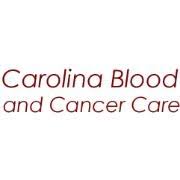
Dr Kashyap Patel Updates on Exciting Developments at ASCO22

Kashyap Patel, MD, CEO of Carolina Blood and Cancer Care Associates, current president of the Community Oncology Alliance, and associate editor of Evidence-Based Oncology™, talks with us ahead of the 2022 American Society of Clinical Oncology (ASCO) Annual Meeting.
Kashyap Patel, MD, CEO of Carolina Blood and Cancer Care Associates, current president of the Community Oncology Alliance (COA), and associate editor of Evidence-Based Oncology™, previews his inclusion as part of The ASCO Post 2022
He also discusses the updated data that will be presented at this year's American Society of Clinical Oncology (ASCO) annual meeting on the No One Left Alone (NOLA) initiative, first presented at the Community Oncology Alliance’s Community Oncology Conference earlier this year, which aims to break down barriers and reduce gaps in community oncology care disparities, including financial toxicity, access to testing, and access to clinical trials.
Transcript
Can you discuss your recognition this year as part of The ASCO Post’s Narratives in Oncology?
Thank you for that question. I was quite pleasantly surprised about a month back when I got an email from Ron Piana from The ASCO Post and he said, since 2010, ASCO recognizes 10 leaders amongst all the membership as leaders in the oncology space, and they do the life narrative in a section called
So they asked me to do my life sketch, and I think they’re doing it because of my contribution to community oncologists and how community oncologists are trying to survive, and how we are playing our role, beginning from the policy, science, disparities, access to care, and one in all of that. So I believe that based on my public profile, writing that I’ve done, multiple presentations, abstracts, I think that’s what they may have led to conclude that I may be one of the features in Narratives in Oncology for the leaders.
Can you update us on the NOLA initiative, which you first presented at COA this year?
NOLA has become almost like a movement now. It stands for No One Left Alone. I conceptualized this last year when we saw the massive
And since then, we had a publication that came out where we followed up close to 350-plus patients for doing the either
The conclusions were that the genomic findings allowed us to make changes in between 20 to 30 patients who otherwise would have been treated with traditional treatments. There is a second piece we achieved. And now, we are collecting very comprehensive social determinants of health information to identify unmet health care needs, like cancer screening. I was surprised to find that we found close to about 300 patients who needed screening that didn’t go for it.
The second thing we found was about 1 in 4 patients in at least our geography had food insecurity or they had insecurity of not being able to have enough money to pay utility bills and fear of homelessness. On the first day of collecting data, we found 3 patients were homeless; they were living in their car and coming for chemotherapy. So, we’ve been able to partner with local not-for-profits.
I feel that by the end of summer of this year, we’ll be able to show that by collaborating with the community resources and multiple stakeholders and not-for-profits, we can address the full pillars of the disparities. The last one is clinical trial, and we’re working on that as well.
So I’m very excited that by end of this year, we’ll have a few more publications that actually tracks the path, almost creating the cookbook or recipe book for how to address disparities in the small community clinic.
Newsletter
Stay ahead of policy, cost, and value—subscribe to AJMC for expert insights at the intersection of clinical care and health economics.









